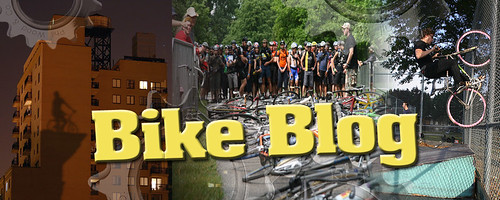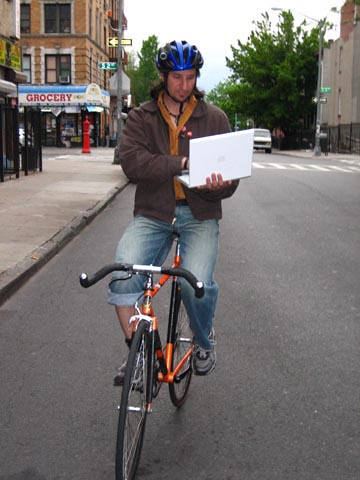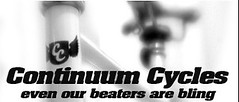The city has permit fever.
If you want a good example of how permits are given out and then the next minute denied...take a look at this example of a rap show in a South Bronx community garden.
One minute the police give you a permit for sound, the next..."ah we don't feel like it"...take it away.
One minute you want to have a huge demonstration in Central Park, "Nope, sorry, we don't want to damage the grass."
Again I ask, you what is going on? New York City should be a shining example of a thriving cutting edge artists community, making art, making film and being FREE. After all the terrorists hate our freedom right? Well now they can laugh at how UNFREE we really are.
Hmmmm. So if you think that the debate on permits only apply to those trying to create trouble or stage demonstrations; or if you think that these issues have a short life and won't spread to all areas of our existance...GUESS AGAIN.
When you get bitten by the permit bug...you get the permit fever.
So now the Mayor's Office of Film and Television wants you to get a permit if 2 or more people are shooting. This means, Photographers, cameramen, film crews, performance art and guess what? THOSE WHO DOCUMENT PROTESTS. You know like when cops shoot people 50 times or when they start a riot in a park or when they tackle people off their bikes or when the take all the bikes on 6th street or when they mace you for documenting them macing you.
Here is what is going on...A new group picture ny has formed to oppose new permit regulations by the Mayor's office of film and tv
The group:
Picture New York is an ad hoc coalition of working artists, filmmakers, and photographers who’ve joined together to fight the proposed rules. These rules can be seen not only as a blow against New York as a place that welcomes and inspires art-making and documentation, but are part of a broader continuum of attacks against civil liberties and free expression.
Here is an article in the NYTimes explaining more about what is going on...
Picturing Protest, Artists Organize to Fight Camera Permit Proposal
By
COLIN MOYNIHAN
Published: July 28, 2007

Beka Economopoulos wields a cardboard prop modeled on a 16-millimeter Bolex camera, which is to be used in a demonstration.
Article: As the city considers rule changes that would require a permit to photograph and film in public places, a coalition of filmmakers and photographers is mobilizing a campaign against the rules by using the very medium they believe the regulations would constrict.
Members of a newly formed advocacy group called Picture New York gathered recently at a gallery in Williamsburg, Brooklyn, to harness their creative skills to express their opposition to the rules by planning demonstrations, including one that was set to take place yesterday in Union Square. The public comment period ends next Friday.
(read the article in the Times)
The new rules: (from an email by Independent Spirit award wining filmmaker Jem Cohen)
"The Mayor’s Office of Theater, Film, and Broadcasting, which coordinates film and television production and issues permits around the five boroughs, is considering rules that could potentially severely restrict the ability of even amateur photographers and filmmakers to operate in New York City. The NY Times reports that the city’s tentative rules include requiring any group of two or more people who want to use a camera in a single public location for more than a half hour (including setup and breakdown time) to get a city permit and $1 million in liability insurance. The regulation would also apply to any group of five or more people who would be using a tripod for more than ten minutes, including setup and breakdown time. -(Excerpted from the Gothamist)
The Mayor’s Office of Film deals primarily with big film shoots (ie. commercials, features, t.v.) where permits and insurance are, understandably, a given. However, many photographers and filmmakers carry on an equally vital tradition in which spontaneous documentation of the urban environment is at the very heart of our work. Being a street photographer often means standing in a random location and waiting: for the right activity, the right light, the break in the traffic; the countless other unpredictable factors that need to fall into place to make a shot worthwhile…Permits would have to be obtained for specific dates and times and exact locations, and the insurance would be out of reach for many individuals.
The fact is that we simply CANNOT predict where, when, and how long we are going to film or photograph; we CANNOT afford expensive liability insurance policies; we occasionally NEED to work with other people or to use tripods to support our gear. (The regulations would, for example, effectively rule out a great deal of time-lapse photography which depends on tripods and cannot possibly be done with time limitations of 10 to 30 minutes, as well as the use of large format still cameras and long lenses).
Especially in the current climate, official clarification of photographer’s rights could be a positive thing. (Many of us have been shut down by police or other authorities who do not seem to understand that we DO have rights to film and photograph in public places). That said, if these regulations go through, it would invite if not require police to harass or shut down both professional artists and amateurs.
Unfortunately, we believe we must see the proposed regulations not only as a blow against New York as a city that welcomes and inspires art-making (and historical documentation), but as part of a continuum of broader attacks against civil liberties and free expression."
So if these new rules offend you and if you think this is not a priority right now when our 100 year old infrastructure is crumpling at our feet with steam pipes randomly exploding in midtown, killing people...I suggest taking action.
The Picture NY website is making it easy to get involved and voice your opinion.
--------------------------
More on the Demonstration in Union Square and critical mass to come...
















